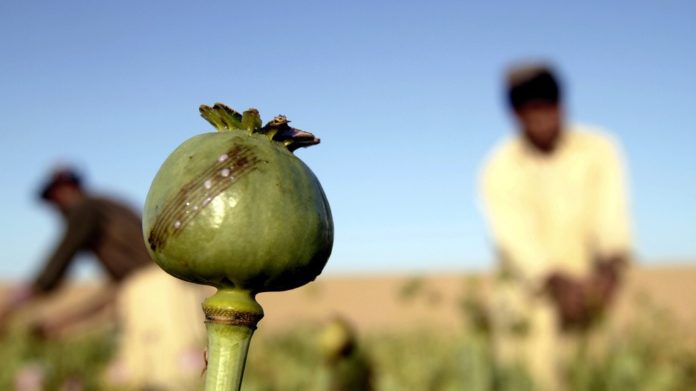Morphine could be home brewed, scientists say

Forget about sediment-muddled ale or questionable Chardonnays; a team of scientists thinks that morphine could easily be made using a standard home brew kit.
John Dueber from the University of California, Berkeley and Vincent Martin of Concordia University in Montreal have genetically modified yeast so it can convert sugar to morphine; they believe the process could have great benefits to medicine.
Their findings, published in Nature Chemical Biology, also raise concerns about abusing homemade drugs.
The main home brewing process involves microscopic yeast turning sugars into alcohol through fermentation. To make the sugar-to-morphone production process easier, the scientists introduced genetic components from plants into the yeast genome.
“What you really want to do from a fermentation perspective is to be able to feed the yeast glucose, which is a cheap sugar source, and have the yeast do all the chemical steps required downstream to make your target therapeutic drug,” Dueber said in a release.
“With our study, all the steps have been described, and it’s now a matter of linking them together and scaling up the process. It’s not a trivial challenge, but it’s doable.”

The process is similar to home brewing used for beer and wine.
Image: adamjackson1984/Flickr
Morphine works directly on the central nervous system and is widely used to relieve pain. It can be taken orally in liquid, tablet or capsule form, or as an injection. The latter process is commonly used in hospitals following operations. Side effects include constipation, drowsiness and nausea.
Traditionally, morphine manufacturing has required a poppy harvest, but these new findings could simplify that process. Over longer periods of time, morphine can become addictive; it’s listed as a Class A drug under the UK’s Misuse of Drugs Act.
Nefarious possibilities
In theory, anyone with basic fermentation skills and access to the new type of yeast could create morphine themselves. The new strains of yeast are “technically demanding to make,” according to Professor Paul Freemont from the Centre for Synthetic Biology and Innovation at Imperial College London.
Several analysts have voiced their concerns in an op-ed for Nature, arguing that the new process could play into criminal hands. Kenneth Oye, Tania Bubela and J. Chappell H. Lawson write that “yeast-based production of opiates could provide an alternative system for current criminal networks, particularly in North America and Europe, where the drugs are in high demand.”
The modified yeast would be much easier to grow and transport, they add, noting that “decentralized and localized production would almost certainly reduce the cost and increase the availability of illegal opiates — substantially worsening a worldwide problem.” More than 16 million people use opiates globally, according to the Nature story.
Vincent Martin likened the new findings to nuclear energy.
“It can be used for good and bad,” he told Motherboard. “So as long as there are regulations, you’re always hoping that you can take advantage of the benefits and restrain the disadvantages.”
Have something to add to this story? Share it in the comments.
